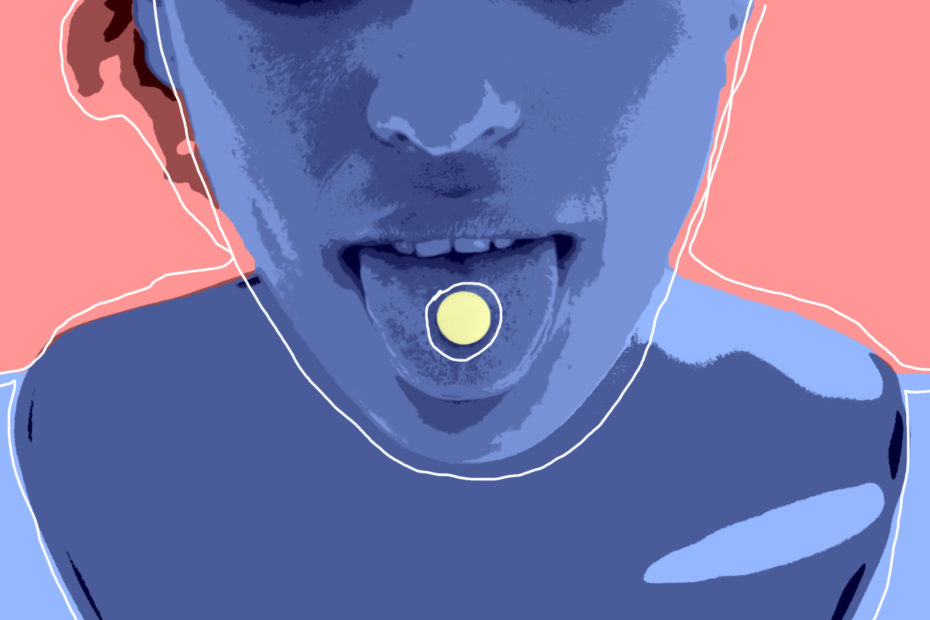By Michael Cook
“When you review the entirety of the literature and ask, ‘Do hormonal contraceptives cause depression?,’ the answer is definitely no.”
In 2020 that was the message of Professor Katherine Wisner, a psychiatrist at Northwestern University Feinberg School of Medicine.
Of course, some women who take contraceptive do get depressed, but Wisner and her colleagues knew why: this was an association and not a cause. For some reason or other, they were already depressed, or predisposed to depression.
This view is echoed by the major family planning and abortion groups. Planned Parenthood’s website has two pages entitled “What are the side effects of the birth control pill?” and “What are the disadvantages of the pill?” Depression is not mentioned. MSI Reproductive Choices (which used to be known as Marie Stopes International) has a page called “Q&A: Answering your questions on contraception”. Depression is not mentioned.
This is the conventional wisdom about the Pill – but it is wrong.
The latest research shows that depression is a real danger for some women who use the contraceptive pill. According to a recent study in the journal Epidemiology and Psychiatric Sciences, women using birth control pills may have as much as 130% increased risk for depression, particularly in the first two years of oral contraceptive use.
The use of OCs [oral contraceptives], particularly during the first 2 years, increases the risk of depression. Additionally, OC use during adolescence might increase the risk of depression later in life.
The possibility that the Pill might have negative effects on mental health and even lead to depression has long been discussed. Although many women choose to stop using the Pill because of its influence on their moods, until now the picture emerging from research has not been straightforward.
Women who began to use contraceptive pills as teenagers had a 130% higher incidence of symptoms of depression, while the corresponding increase among adult users was 92%.
This study is one of the largest and widest-ranging to date, following more than a quarter of a million women from UK Biobank from birth to menopause.
The researchers collected data about women’s use of contraceptive pills, the time at which they were first diagnosed with depression and when they first experienced symptoms of depression without receiving a diagnosis. The method of contraception studied was combined contraceptive pills, which contain progestogen, a compound resembling the hormone progesterone, and oestrogen. Progestogen prevents ovulation and thickens the cervical mucus to prevent sperms from entering the uterus, while oestrogen thins the uterine lining to hinder the implantation of a fertilised egg.
According to the study, women who began to use contraceptive pills as teenagers had a 130% higher incidence of symptoms of depression, while the corresponding increase among adult users was 92%.
“The powerful influence of contraceptive pills on teenagers can be ascribed to the hormonal changes caused by puberty. As women in that age group have already experienced substantial hormonal changes, they can be more receptive not only to hormonal changes but also to other life experiences,” says Therese Johansson of Uppsala University, one of the authors.
The researchers were also able to see that the increased incidence of depression declined when the women continued to use contraceptive pills after the first two years. However, teenage users of contraceptive pills still had an increased incidence of depression even after stopping using the pill — which was not observed in adult users of contraceptive pills.
The findings point to a need for doctors to be more aware of possible links between different systems in the body, such as depression and the use of the Pill. The researchers concluded that it is important for care providers to inform women who are considering using contraceptive pills of the potential risk of depression as a side effect of the medicine.
The link between the Pill and depression is not really news. Back in 2016 Danish researchers published a study based on data from more than 1 million women over 19 years in JAMA Psychiatry. They found that:
Use of hormonal contraception, especially among adolescents, was associated with subsequent use of antidepressants and a first diagnosis of depression, suggesting depression as a potential adverse effect of hormonal contraceptive use.
It is predictable that Planned Parenthood and other organisations have been ignoring the serious ethical issues involved with taking the Pill. It’s inexcusable that they are ignoring its medical risks. Are they just as economical with the truth about abortion and transgender medicine?
This article has been reprinted with permission and can be found at mercatornet.com/the_pill_increases_risk_of_depression_amongst_young_women_by_130.
